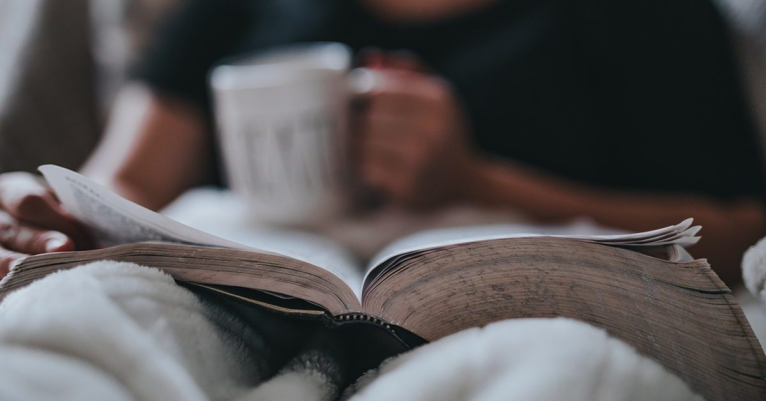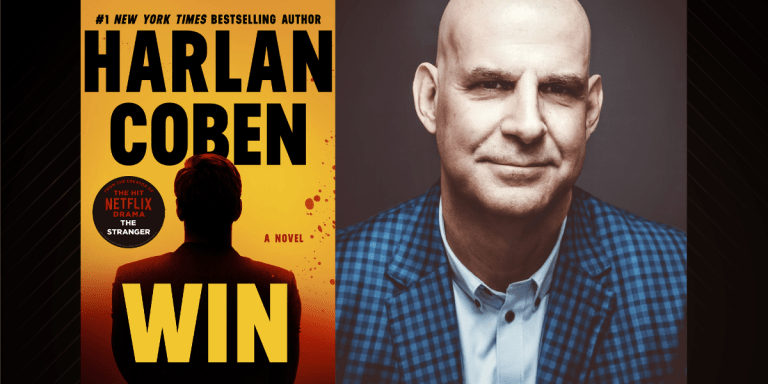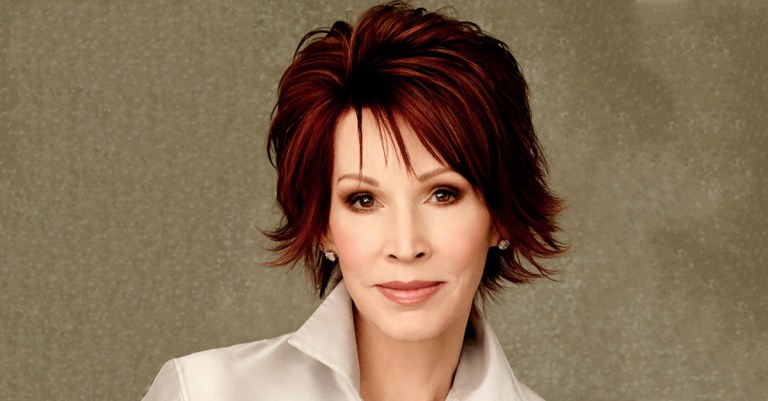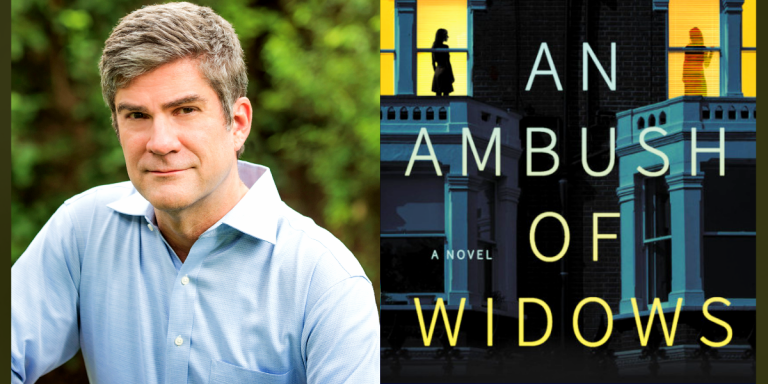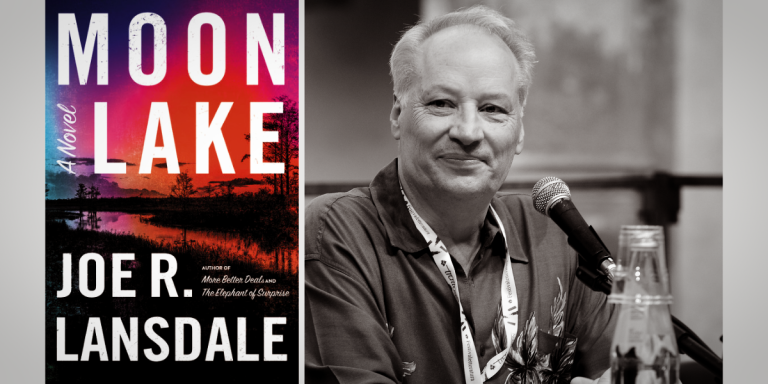Karin Slaughter on Her Latest Thriller False Witness
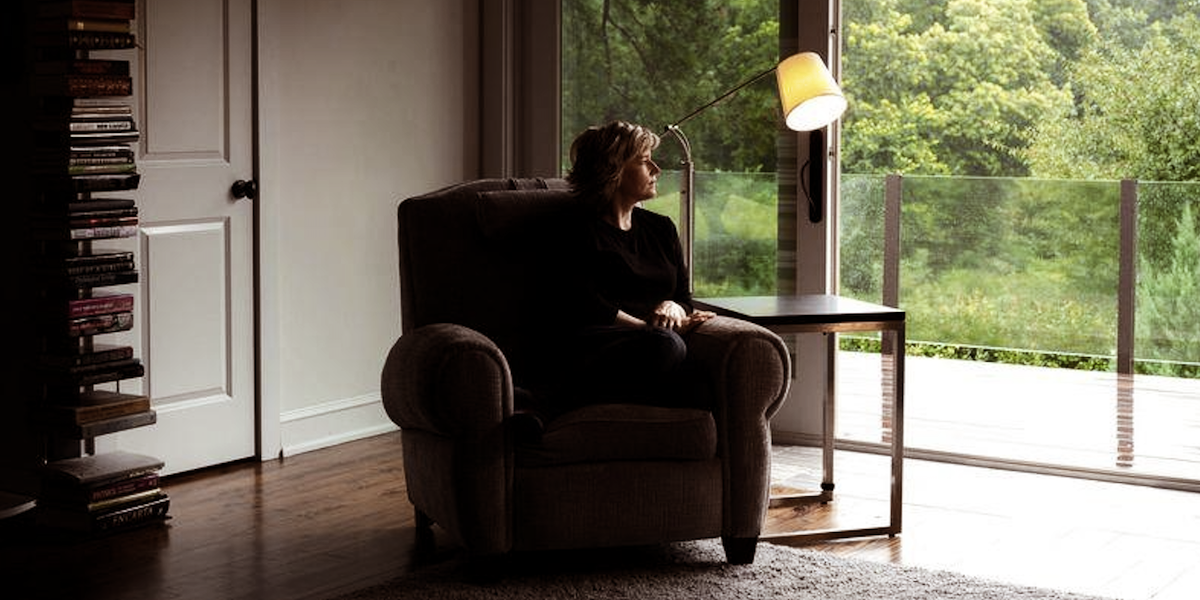
False Witness is your latest standalone novel that covers a range of contemporary issues—life during a pandemic, the struggles of addiction, family secrets entrenched in a murky past, abuse—all packaged in an unputdownable psychological thriller. We’re happy to sit down and discuss it with you. False Witness is on sale Tuesday, July 20th.
NS: As you’ve said in previous interviews, your books are most successful when balancing character and plot. How does False Witness do this? What thrilling adventures do fans of yours have to look forward to in this new book?
KS: At its very heart, this is a love story—about two sisters, Callie and Leigh who will sacrifice anything for each other. They’re survivors of childhood abuse and their lives subsequently took very different paths. We know from research into childhood abuse that survivors experience all kinds of negative health consequences as adults—from a predisposition toward alcohol and drug addiction to heart disease and diabetes. Leighs response to the awful things that happened are more socially acceptable. She’s a lawyer at the top of her field who is a control freak in her daily life, down to presenting herself as different people to every person she meets. For Callie, her response was to completely abdicate all control of her life to heroin. She’s an addict and has been for decades by the time we catch up with her. I wanted to humanize addiction and show that people who are caught up in it are human beings whose lives have meaning.
NS: In False Witness, the main character Leigh must defend a man accused of multiple counts of assault or face losing her job. It’s a moral conundrum that she constantly battles with throughout the series. What can you tell us about how Leigh navigates this challenge?
KS: As a defense attorney, Leigh is used to having clients who are guilty. She sees her job as leveling the playing field. We give the state an awesome amount of power to take away our freedom, and she is a steward that keeps that system in check. So while she might not argue for innocence in some cases, she always argues for fairness. With this particular client in False Witness, there are other things that come into play because she is directly threatened by the client. Eventually, she figures out that it’s not just her life on the line—it’s Callie’s and her daughter Maddy who are also in the line of fire.
NS: What was one of your favorite scenes to write in the book and why?
KS: There’s a scene on the swing sets midway through the book. Leigh and Callie are in their old neighborhood swinging back and forth in opposite directions. As they are talking, Callie can see Leigh, then Leigh disappears, and back and forth as Leigh tells her things that come straight from her heart. I wrote the scene on the swing sets because this gave Leigh the opportunity to hide her expression (and her feelings) because Callie couldn’t see her half of the time. I think if they had been face-to-face, it wouldn’t have been possible.
NS: The relationship between Leigh and her sister Callie is as complex as it is enduring. There is nothing they won’t do to protect one another. Did you draw on your own experiences when creating their relationship?
KS: I will say like any good sister, if you come after my sister, I will come at you 10,000 times back. There’s just a bond that is there. At the same time, I can get more irritated with my sister than anyone else on earth, so there is definitely a give and take. For Callie and Leigh specifically, they have a shared trauma that makes it difficult to be together for very long, because each reminds the other of this horrible thing. Leigh has spent her life running from it while Callie can’t pull herself out of the pain.
NS: Psychological thrillers continue to be some of the most popular books in the crime fiction genre, and you’re at the forefront with over 35 million copies of your books being sold worldwide. How does the genre look different from when you published your debut Blindsighted in 2001?
KS: I don’t think what I’m doing now is that different from the first books. I made a choice at the beginning of my career to write about violence against women as realistically as possible because I felt it was important to show it for what it is. It’s not titillating or sexy. It is brutal and horrible and life-altering. But that being said, the focus of my work has never been the violence. The harder parts to write are detailing what the violence leaves behind. How do women recover from assault? How does their family respond? What does it do to alter the fabric of their communities? How do police officers deal with the darkness they have to face? Those are the stories that I’ve always told.
NS: Finally, let’s talk about Buddy and Andrew. They both have the cold and calculated antagonists-vibes down pat. Some authors might find it hard to write antagonists, but your books continue to have villains as memorable as they are malevolent. What’s your secret?
KS: I see the villains as real people. I’m not a believer of “evil” as a Biblical concept. People do bad things for very clear reasons. There’s generally a psychopathy involved with more brutal crimes, but then you have contributing factors such as child abuse, neglect, brain damage, etc. If we say someone did something bad because they’re simply evil, that sort of lets them—and society as a whole—off the hook. We know there are certain elements that foster violence and it’s easier to throw up our hands as if it’s completely beyond our control than to acknowledge that through lack of funding, lack of health care, lack of empathy, lack of decency and understanding, we are letting certain things fester and crossing our fingers every time it happens that it will never happen again.
Order the Book
Leigh Collier has worked hard to build what looks like a normal life. She’s an up-and-coming defense attorney at a prestigious law firm in Atlanta, would do anything for her sixteen-year-old daughter Maddy, and is managing to successfully coparent through a pandemic after an amicable separation from her husband Walter.
But Leigh’s ordinary life masks a childhood no one should have to endure … a childhood tarnished by secrets, broken by betrayal, and ultimately destroyed by a brutal act of violence.
On a Sunday night at her daughter’s school play, she gets a call from one of the firm's partners who wants Leigh to come on board to defend a wealthy man accused of multiple counts of rape. Though wary of the case, it becomes apparent she doesn't have much choice if she wants to keep her job. They're scheduled to go to trial in one week. When she meets the accused face-to-face, she realizes that it’s no coincidence that he’s specifically asked for her to represent him. She knows him. And he knows her. More to the point, he may know what happened over twenty years ago, and why Leigh has spent two decades avoiding her past.
By clicking 'Sign Up,' I acknowledge that I have read and agree to Hachette Book Group’s Privacy Policy and Terms of Use
What to Read Next

